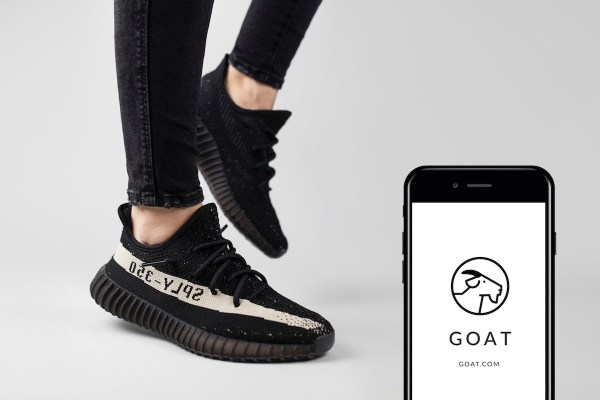The secondary market for collectible shoes continues to grow, leading investors to pump more funds into companies serving sneakerheads. Taking advantage of both trends, Los Angeles-based GOAT has raised another $25 million in funding led by Accel Partners to hire up and expand its distribution capabilities.
GOAT provides a mobile-only marketplace where buyers and sellers connect to exchange the latest in collectible sneakers. Unlike some older, less reputable marketplaces, GOAT does the hard work of verifying that the shoes its customers buy are the real deal and not cheap knockoffs made to look like Yeezys. It also checks the condition of those sneakers to make sure your Jordans aren’t fucked up.
GOAT announced a $5 million round of funding just last August, and has investors like Matrix Partners, Upfront Ventures and Webb Investment Network already on board. But due to fast growth, the company received a lot of inbound interest from other investors looking to jump on board.
The company decided to take cash from Accel in part because of the firm’s experience taking e-commerce businesses to the next level, and in part because partner Ryan Sweeney is a huge sneakerhead and innately understood what they were doing.
Sweeney, who has backed companies like Braintree, Groupon, Lightspeed and VSCO, owns a boatload of shoes and will be joining GOAT’s board.
A better question might be why raise now, considering it “barely touched that $5 million we raised last spring,” according to CEO Eddy Lu. Since that raise, Lu says the company’s user base has grown to 1.5 million and GMV has increased 10x in that time.
As a result, Lu says GOAT has become massively understaffed and operations have quickly outgrown the three warehouses the company is working out of in Culver City.
“We started with a 2,500-square-foot warehouse, and we outgrew that during the middle of last year,” Lu said. Since then, the company has added a 4,000-square-foot facility across the street and another 7,000-square-foot warehouse nearby. With the new funding, GOAT is looking to find a space where it can bring everything back under one roof.
More importantly, the company is hoping to make sales happen more quickly by opening a new distribution center on the east coast. Currently all shoes are verified and authenticated out of its L.A. facilities, which means longer shipping and processing times for buyers and sellers in New York City, for instance. But “we want to be able to ship anywhere in two days,” Lu said.
For 2017, the company will also be investing in improving its mobile app. That includes making it easier for sellers to get their shoes up on the marketplace. “On a marketplace like this, it’s all about liquidity,” Lu said. By improving the seller flow, he hopes to make sure buyers will always be able to find something interesting on the app.
GOAT isn’t the only startup targeting the sneaker market that’s raised funding recently. New York-based Stadium Goods, another online seller of sneakers, recently raised $4.6 million from investors that include Forerunner Ventures, The Chernin Group and Mark Cuban. But Lu sees Stadium Goods as complementary to its model.
While his company is focused solely on providing a marketplace-based app, Lu says Stadium Goods has more of an omnichannel approach, including brick-and-mortar locations and selling online and through marketplaces like GOAT.
